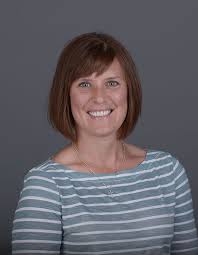
My career in Dance Education started in the K-12 sector and advanced to higher education as I guide students into the field of Dance Education at Hope College. My experience with MAEIA over the last four years, truly changed my understanding and attitude towards assessment.
What has been your experience with assessment?
When I was teaching in K-12, finding meaningful and purposeful ways to measure student growth in the dance classroom was difficult. I was consistently grappling with how to improve my teaching and assessment methods.
Am I providing adequate ways for students to demonstrate proficiency, confidence, and dance literacy?
The expectation of dance assessment was to to show evidence of what my students were learning through participation in kinesthetic and creative performance-based experiences, but finding resources and tools to do this well presented a challenge.
Assessing students seemed to be a chore versus a celebration of teaching and learning.
What would you like educators to know about the MAEIA model assessments?
The experience of working with MAEIA- developing and using the resources personally, then observing students in the assessment process first hand, changed my understanding and awareness of the importance and impact of quality assessment. It has improved my teaching, providing more authentic ways to assess my students, and thus a more accurate measurement of growth.
MAEIA assessments function differently than traditional assessments. The shift towards performance assessment that demonstrates authentic measurement of student learning transforms traditional assessment. Performance assessment enables students to use complex, higher-order thinking skills versus a focus on isolated facts and memorization requiring little demonstration or application. Opportunities for students to problem-solve, create, design, and collaborate has become a more widely used method to assess student competency.
Today’s schools place emphasis on the implementation of quality assessment to demonstrate both student growth, as well as, teacher effectiveness. Reaching and measuring the growth of a classroom of diverse learners requires careful planning and execution.
Through the MAEIA assessments, students are involved and demonstrate their ability to perform, create, respond and connect, which reflect national, state, and performance standards. The Dance assessments, specifically, include domains of physical, cognitive, social and affective learning, offering a breadth of experiences that develop the whole person.
If you are ready to upgrade your teaching and your students’ learning, do it with MAEIA model assessments. They have the potential to bring new life to the challenges and rewards of quality assessment.
Click here for a Printer friendly version of this article.
Leave a Reply
You must be logged in to post a comment. Don't have an account? Register Here.